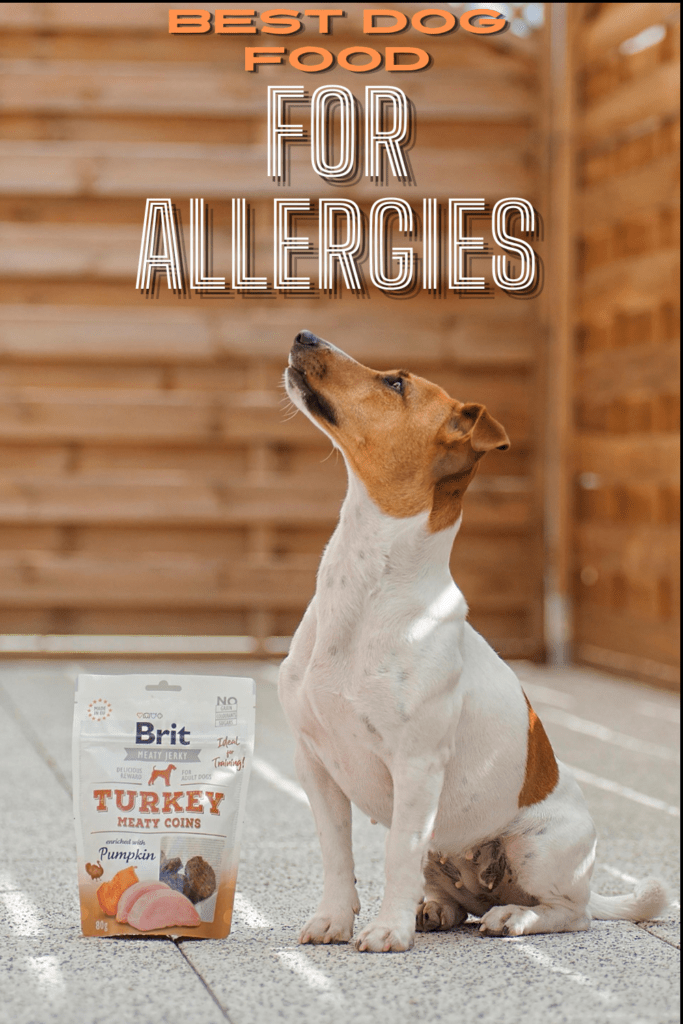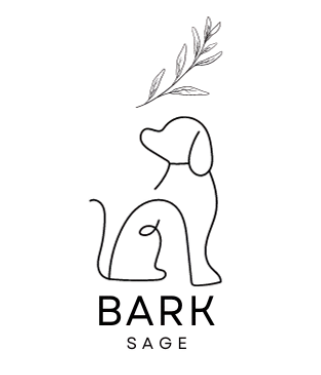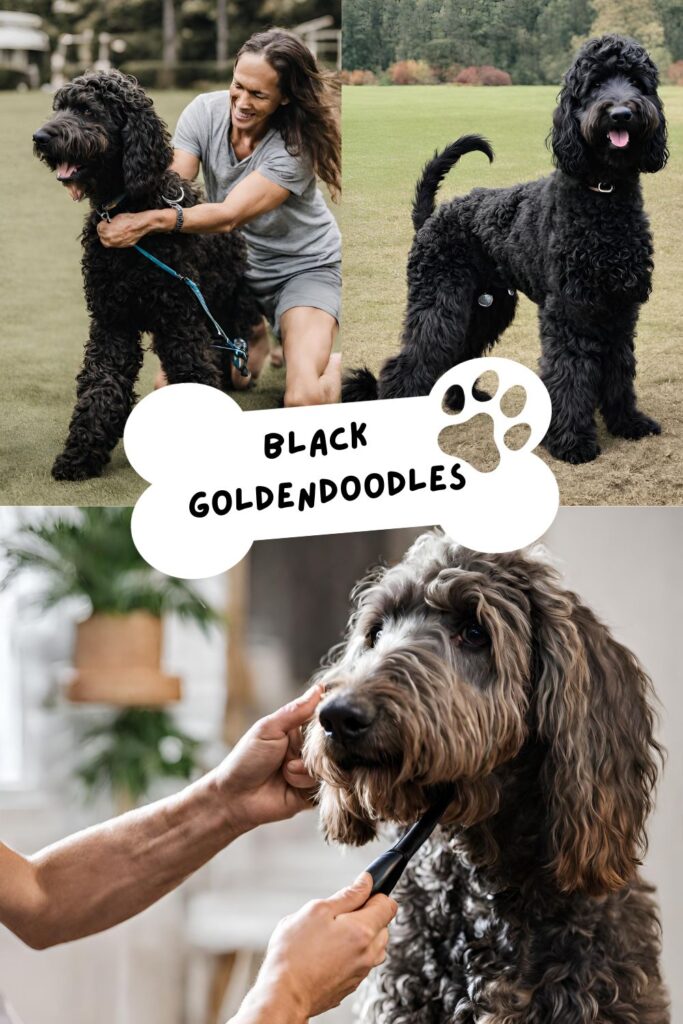
As pet owners, we understand the heartache of seeing our furry friends suffer from food allergies and skin irritations. It can be heartbreaking to watch them scratch relentlessly or deal with painful digestive issues. We know the frustration of trying various dog food options, hoping to find one that alleviates their discomfort and gives them the nutrition they need. That’s why we’ve curated a list of the best dog food for allergies so you can provide your pup with a meal that not only satisfies their taste buds but also supports their overall health.
Key Takeaways:
- Choosing the right dog food is crucial for managing allergies and promoting a healthy skin and stomach.
- Look for limited ingredient and hypoallergenic dog food options to minimize potential allergens.
- Consider novel ingredient or elimination diets to identify specific triggers for your dog’s allergies.
- Grain-free and prescription dog food may be suitable alternatives for dogs with specific dietary requirements.
- Consult with your veterinarian for personalized recommendations tailored to your dog’s unique needs.
Understanding Allergies in Dogs
Allergies in dogs can manifest in various forms, including food sensitivities, allergic reactions, and skin irritations. It is crucial for dog owners to understand these allergies to ensure their furry companions receive the appropriate care and nutrition they need.
Food Sensitivity and Allergic Reactions
Dogs can have sensitivities or allergies to specific ingredients commonly found in their food. These allergies can cause a range of symptoms, including digestive issues such as a sensitive stomach, excessive gas, or diarrhea. Other signs that your dog may have a food sensitivity or allergy include itchy skin, frequent scratching, and sensitive skin that may be prone to rashes or inflammation.
To address these issues, hypoallergenic food or a limited ingredient diet may be recommended. Hypoallergenic food is specially formulated to reduce the likelihood of triggering allergic reactions in dogs. Limited ingredient diets, on the other hand, contain a minimal number of ingredients to help identify and eliminate potential allergens from your dog’s diet. If you suspect your dog has food sensitivities or allergies, consulting with a veterinarian or internal medicine specialist can help identify the specific ingredients to avoid.
The Importance of Protein Source and Fatty Acids
When selecting dog food for allergies, it is essential to consider the protein source. Some dogs may have sensitivities to certain proteins, such as chicken or beef. In such cases, choosing a dog food that utilizes alternative protein sources, like duck or salmon, may be beneficial.
Fatty acids, such as omega-3 and omega-6, play a vital role in managing allergies in dogs. These fatty acids help support a healthy coat and skin, reducing itchiness and inflammation. Look for dog foods that contain added sources of fatty acids, such as fish oil or flaxseed.
In addition to protein source and fatty acids, certain dog foods may contain internal medicine components targeting specific allergies. These specialized formulas may help alleviate symptoms and improve your dog’s overall well-being.
Addressing Sensitive Stomachs and Itchy Skin
Dogs with allergies often experience digestive issues, such as sensitive stomachs. Switching to a dog food specifically designed for sensitive stomachs can help alleviate discomfort and promote better digestion.
Itchy skin is a common symptom of allergies in dogs. To help soothe your dog’s skin, consider dog foods that contain ingredients known to support skin health, such as sweet potato or brown rice.
Understanding the specific needs of your dog and addressing their sensitivities and allergies is crucial for their overall well-being. By choosing the right dog food that caters to their dietary requirements and supports their sensitive stomachs, itchy skin, and overall health, you can provide them with the comfort and relief they need to lead a happy and healthy life.
Choosing the Best Dog Food for Allergies
When it comes to selecting the best dog food for allergies, there are several factors to consider. In this section, we will explore various dog food brands that offer options suitable for dogs with allergies. We will discuss the benefits of specific ingredients like hydrolyzed protein, sweet potato, and brown rice, and the suitability of dry food, wet food, and raw food diets for dogs with allergies. Let’s dive in and find the perfect food for your furry friend!
The Importance of Ingredient Selection
When choosing a dog food for allergies, it’s essential to pay attention to the ingredients. Some ingredients can trigger allergic reactions in dogs, while others may be considered hypoallergenic. Brands such as Royal Canin, Purina Pro Plan, and American Feed Control have gained recognition for their focus on developing allergy-friendly formulations.
One key ingredient to look for is hydrolyzed protein. This type of protein undergoes a process that breaks it down into smaller pieces, making it less likely to cause an allergic reaction in sensitive dogs. It is often used in hypoallergenic and limited ingredient diets.
Sweet potato and brown rice are also beneficial ingredients for dogs with allergies. These alternatives to grains like wheat and corn are considered easily digestible, making them suitable for dogs with sensitive stomachs. Additionally, they provide essential nutrients and carbohydrates for energy.
Determining the Ideal Food Type
When it comes to the type of dog food, the options include dry food, wet food, and raw food diets. Dry dog food is a popular choice as it provides convenience and is often formulated to meet specific dietary needs, including allergies. Wet food, on the other hand, can be more palatable and easier to chew, making it suitable for dogs with dental issues or those who prefer moist food. Raw food diets, although less common, have gained popularity for their focus on providing a biologically appropriate, whole-food-based diet.
Comparison of Top Dog Food Brands for Allergies
| Brand | Key Features |
|---|---|
| Royal Canin | Specialized formulas for different breeds and sizes, including hypoallergenic options with hydrolyzed protein. |
| Purina Pro Plan | Offers a variety of formulas tailored to specific needs, including sensitive skin and stomach options. |
| American Feed Control | Focuses on limited ingredient diets and novel protein sources to minimize allergic reactions. |
These brands have been carefully selected for their commitment to producing high-quality dog food that addresses allergies and provides a balanced diet for adult dogs.
Remember, it’s important to consult with your veterinarian to determine the best dog food for your pet’s specific allergies and dietary requirements. They can provide personalized recommendations based on your dog’s individual needs.
Now that we’ve explored the various dog food options available for dogs with allergies, let’s move on to the conclusion where we will summarize our key findings and provide some key takeaways.
Conclusion
In conclusion, finding the best dog food for allergies requires careful consideration of your dog’s specific sensitivities and dietary needs. By understanding the different types of allergies, such as food allergies and skin allergies, you can take proactive steps to address your dog’s discomfort.
Identifying potential allergens and avoiding them in your dog’s diet is crucial. This may involve switching to a limited ingredient dog food, choosing hypoallergenic dog food options, or even trying a novel ingredient dog food. Remember, every dog is unique, and what works for one may not work for another.
When selecting an appropriate dog food brand, consider well-known options such as Royal Canin and Purina Pro Plan, which are recognized for their allergy-friendly formulations. Additionally, consult with a veterinarian to receive personalized recommendations tailored to your dog’s specific situation.


